Institute Panel Presenters
Cultivating a Civil Society in an Era of Incivility
Presenters
Our Individual Civil Character -(Session I)
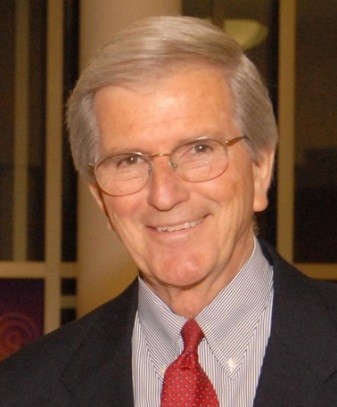 David Mathews is president of the Kettering Foundation, a nonprofit research foundation rooted in the American tradition of invention. Prior to his work with the foundation, Mathews served as Secretary of Health, Education, and Welfare in the Ford administration. From 1965 to 1980, he taught history at the University of Alabama, where he also served as president from 1969 to 1980. Mathews earned an A.B. degree in history and classical Greek. After graduating Phi Beta Kappa from the University of Alabama, he received his Ph.D. in history from Columbia University. Mathews has served on the boards of a variety of organizations, currently including the Gerald R. Ford Foundation, National Issues Forums Institute, Southern Institute on Children and Families, and Public Agenda. He has received numerous awards, and in 2007, the Alabama Center for Civic Life was renamed in his honor. He is also the recipient of 17 honorary degrees. Mathews has written extensively on Southern history, public policy, education, and international problem solving. His books include Politics for People: Finding a Responsible Public Voice, Reclaiming Public Education by Reclaiming Our Democracy, and The Ecology of Democracy: Finding Ways to Have a Stronger Hand in Shaping Our Future. Mathews is married to Mary Chapman Mathews, and they have two daughters and six grandchildren.
David Mathews is president of the Kettering Foundation, a nonprofit research foundation rooted in the American tradition of invention. Prior to his work with the foundation, Mathews served as Secretary of Health, Education, and Welfare in the Ford administration. From 1965 to 1980, he taught history at the University of Alabama, where he also served as president from 1969 to 1980. Mathews earned an A.B. degree in history and classical Greek. After graduating Phi Beta Kappa from the University of Alabama, he received his Ph.D. in history from Columbia University. Mathews has served on the boards of a variety of organizations, currently including the Gerald R. Ford Foundation, National Issues Forums Institute, Southern Institute on Children and Families, and Public Agenda. He has received numerous awards, and in 2007, the Alabama Center for Civic Life was renamed in his honor. He is also the recipient of 17 honorary degrees. Mathews has written extensively on Southern history, public policy, education, and international problem solving. His books include Politics for People: Finding a Responsible Public Voice, Reclaiming Public Education by Reclaiming Our Democracy, and The Ecology of Democracy: Finding Ways to Have a Stronger Hand in Shaping Our Future. Mathews is married to Mary Chapman Mathews, and they have two daughters and six grandchildren.
 David Dunning is Professor of Psychology at Cornell University, where he has been since receiving his PhD from Stanford University and his BA from Michigan State University. His primary research focus in on the psychology of human misbelief, in particular the misconceptions people hold of their own competence and character. This work has been discussed several times in the New York Times, The Atlantic, The Guardian, Pacific Standard, National Public Radio, BBC, CBC, and even a Doonesbury cartoon. He is past president of the Society of Experimental Social Psychology and incoming president of the Society for the Study of Motivation. He has been a visiting scholar at Yale University, University of Michigan, University of Mannheim, and the University of Cologne. In Summer 2015, he will be moving to the University of Michigan.
David Dunning is Professor of Psychology at Cornell University, where he has been since receiving his PhD from Stanford University and his BA from Michigan State University. His primary research focus in on the psychology of human misbelief, in particular the misconceptions people hold of their own competence and character. This work has been discussed several times in the New York Times, The Atlantic, The Guardian, Pacific Standard, National Public Radio, BBC, CBC, and even a Doonesbury cartoon. He is past president of the Society of Experimental Social Psychology and incoming president of the Society for the Study of Motivation. He has been a visiting scholar at Yale University, University of Michigan, University of Mannheim, and the University of Cologne. In Summer 2015, he will be moving to the University of Michigan.
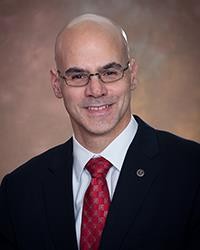 East Lansing City Manager George Lahanas began his tenure with the city in 1999. Since that time, Lahanas has been served as the interim city manager of East Lansing since October 2011 and, prior to that, served as the deputy city manager of East Lansing from July 2008-October 2011. He has served in various capacities with the City of East Lansing since 1999, serving as a labor relations specialist from 1999-2001, the director of Human Resources from 2001-2005 and the director of Administrative Services from 2005-2008. In January 2012, he was selected as the fifth city manager to serve East Lansing in its history. Originally from New York, George came to Michigan to attend Northern Michigan University where he earned a BS in Criminal Justice with a minor in English. He subsequently completed his master’s degree in Public Administration, also from Northern Michigan University. Following graduate school, George was hired on as the human resources coordinator for the Eastern Upper Peninsula Mental Health Board, later moving into the position of director of administrative operations for the Shiawassee County Mental Health Board before coming to the City of East Lansing. Over the 15 years that George has been employed by the City of East Lansing, he has distinguished himself by upholding a high standard of professionalism. He has represented the City of East Lansing on the regional 911 collaboration committee, served as chief spokesperson for the City of East Lansing during collective bargaining negotiations, co-chaired the City’s collaborative Health Care Task Force and served as staff liaison to the Human Relations Commission. He notes that one of the most rewarding aspects of working for the City of East Lansing is the relationships he’s forged with fellow employees. He also takes pride in the East Lansing Community and all that it has to offer. George resides in East Lansing with his wife, Shelley and young daughters Eleni and Marina.
East Lansing City Manager George Lahanas began his tenure with the city in 1999. Since that time, Lahanas has been served as the interim city manager of East Lansing since October 2011 and, prior to that, served as the deputy city manager of East Lansing from July 2008-October 2011. He has served in various capacities with the City of East Lansing since 1999, serving as a labor relations specialist from 1999-2001, the director of Human Resources from 2001-2005 and the director of Administrative Services from 2005-2008. In January 2012, he was selected as the fifth city manager to serve East Lansing in its history. Originally from New York, George came to Michigan to attend Northern Michigan University where he earned a BS in Criminal Justice with a minor in English. He subsequently completed his master’s degree in Public Administration, also from Northern Michigan University. Following graduate school, George was hired on as the human resources coordinator for the Eastern Upper Peninsula Mental Health Board, later moving into the position of director of administrative operations for the Shiawassee County Mental Health Board before coming to the City of East Lansing. Over the 15 years that George has been employed by the City of East Lansing, he has distinguished himself by upholding a high standard of professionalism. He has represented the City of East Lansing on the regional 911 collaboration committee, served as chief spokesperson for the City of East Lansing during collective bargaining negotiations, co-chaired the City’s collaborative Health Care Task Force and served as staff liaison to the Human Relations Commission. He notes that one of the most rewarding aspects of working for the City of East Lansing is the relationships he’s forged with fellow employees. He also takes pride in the East Lansing Community and all that it has to offer. George resides in East Lansing with his wife, Shelley and young daughters Eleni and Marina.
Bringing Civility to Public Places - (Session II)
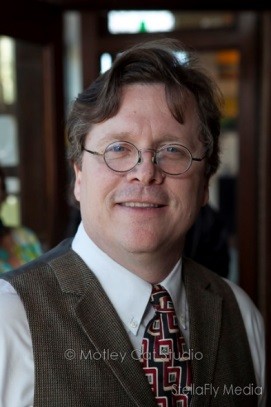 David Bulkowski is the Executive Director of Disability Advocates of Kent County which is a catalyst for inclusive thinking that ignites community-wide change and a means by which people with disabilities can discover their power and reinvent their own view of themselves and their capabilities. Mr. Bulkowski, a licensed attorney, works extensively with state and federal laws teaching others how these laws affect the rights and responsibilities of the community and persons with disabilities. Finally, Mr. Bulkowski has spent a great deal of time organizing and advocating for increased public transportation in the Grand Rapids region. He is a facilitator of Faith In Motion and served as the co-chair for Friends of Transit which successfully passed local millages to expand transit services in April 2000, November 2003, May 2007 and May 2011. Finally, he is active with Transportation for Michigan and has provided community organizing training throughout Michigan.
David Bulkowski is the Executive Director of Disability Advocates of Kent County which is a catalyst for inclusive thinking that ignites community-wide change and a means by which people with disabilities can discover their power and reinvent their own view of themselves and their capabilities. Mr. Bulkowski, a licensed attorney, works extensively with state and federal laws teaching others how these laws affect the rights and responsibilities of the community and persons with disabilities. Finally, Mr. Bulkowski has spent a great deal of time organizing and advocating for increased public transportation in the Grand Rapids region. He is a facilitator of Faith In Motion and served as the co-chair for Friends of Transit which successfully passed local millages to expand transit services in April 2000, November 2003, May 2007 and May 2011. Finally, he is active with Transportation for Michigan and has provided community organizing training throughout Michigan.
 Holly Madill assists both PZC and LPI at MSU in research and outreach projects related to land use and strategic growth. She brings a diverse set of skills to this position having developed and managed planning, capacity building, and public policy projects for the private, nonprofit, institutional, and public sectors over the course of the last 15 years. She specializes in community engagement, transportation, and plan development. Holly holds a Bachelor's degree in Environmental Science from the University of Alabama and a Master's degree in Urban and Regional Planning from Michigan State University.
Holly Madill assists both PZC and LPI at MSU in research and outreach projects related to land use and strategic growth. She brings a diverse set of skills to this position having developed and managed planning, capacity building, and public policy projects for the private, nonprofit, institutional, and public sectors over the course of the last 15 years. She specializes in community engagement, transportation, and plan development. Holly holds a Bachelor's degree in Environmental Science from the University of Alabama and a Master's degree in Urban and Regional Planning from Michigan State University.
Dr. Tracy Brower, PhD, MM, MCR is a work environment sociolo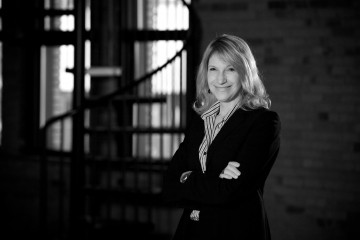 gist and director of Human Dynamics + Work for Herman Miller. She is the author of Bring Work to Life by Bringing Life to Work: A Guide for Leaders and Organizations (September 2014) which focuses on work-life integration and abundance. In her role at Herman Miller, Tracy leads the development of knowledge and insights related to Herman Miller's point of view on the sociology of work - how people affect their work and work environment, and how the work and work environment affect them back. Her efforts focus on fundamental human needs and their implications for leadership and place. Over her career, Tracy has had the opportunity to engage with a wide range of organizations including many of the Fortune 500. Tracy holds a PhD in sociology as well as a Masters of Management and a Masters of Corporate Real Estate. Tracy has been interviewed for StoryCorps, Financial Spectrum, WGVU, WHPC’s Secrets of Success, Center for Creative Leadership, BOMA Magazine, and Globe and Mail. Her work has been referenced in the Wall Street Journal, Green Source, and MMQB. She has also published her work in the Drucker Institute Blog, The Leader Magazine, Area Development, The Voice, Leadership Excellence, and more.
gist and director of Human Dynamics + Work for Herman Miller. She is the author of Bring Work to Life by Bringing Life to Work: A Guide for Leaders and Organizations (September 2014) which focuses on work-life integration and abundance. In her role at Herman Miller, Tracy leads the development of knowledge and insights related to Herman Miller's point of view on the sociology of work - how people affect their work and work environment, and how the work and work environment affect them back. Her efforts focus on fundamental human needs and their implications for leadership and place. Over her career, Tracy has had the opportunity to engage with a wide range of organizations including many of the Fortune 500. Tracy holds a PhD in sociology as well as a Masters of Management and a Masters of Corporate Real Estate. Tracy has been interviewed for StoryCorps, Financial Spectrum, WGVU, WHPC’s Secrets of Success, Center for Creative Leadership, BOMA Magazine, and Globe and Mail. Her work has been referenced in the Wall Street Journal, Green Source, and MMQB. She has also published her work in the Drucker Institute Blog, The Leader Magazine, Area Development, The Voice, Leadership Excellence, and more.
Theories of Civility (Session III)
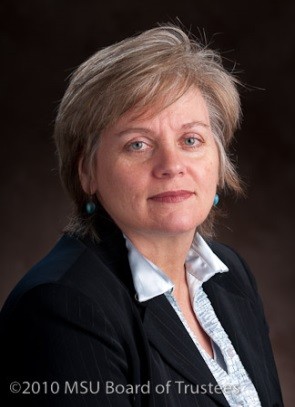 Dr. Louise A. Jezierski is an Associate Professor of Social Relations and Policy and Comparative Cultures and Politics at James Madison College, Michigan State University. Her research includes revitalization of declining cities, especially the cities of Detroit, Pittsburgh, and Cleveland, local and regional economic and community development, race relations and social inequality. Some recent projects include community building in Lansing, MI, Soccer and Community Building in Detroit, MI, “Race/Socioeconomic Area Characteristics & Cancer – Detroit” funded by the National Cancer Institute, The Effect of State Legislation on Sub-Prime Lending, Michigan’s Latino Communities, and funding from US Department of Housing and Urban Development and the National Hispanic Housing Council for a study on Hispanic housing access in El Paso Texas. She was a postdoctoral fellow at UCLA’s Institute of American Cultures in 1992 at the Chicano Studies Research Center. She teaches, Social Theory, Metropolitan Societies – a course on Detroit, Global Cities and Urbanism, Social Policy, Social Movements, and American Middle Class Politics and Policy. She was an MSU Lilly Teaching Fellow in 2000-2001. She received the MSU Alumni Club of Mid-Michigan Quality in Undergraduate Teaching Awards in recognition of outstanding undergraduate teaching, Michigan State University all-university award (2010). She also received an MSU Curricular Service-Learning and Civic Engagement Award (2010). Prof. Jezierski is a Board Member of MSU’s Center for Community and Economic Development and served as Managing Editor of the Journal of Urban Affairs (2009-2014). She received her BA at Boston University in Sociology and Geography and her MA and PhD in Sociology at the University of California, Berkeley.
Dr. Louise A. Jezierski is an Associate Professor of Social Relations and Policy and Comparative Cultures and Politics at James Madison College, Michigan State University. Her research includes revitalization of declining cities, especially the cities of Detroit, Pittsburgh, and Cleveland, local and regional economic and community development, race relations and social inequality. Some recent projects include community building in Lansing, MI, Soccer and Community Building in Detroit, MI, “Race/Socioeconomic Area Characteristics & Cancer – Detroit” funded by the National Cancer Institute, The Effect of State Legislation on Sub-Prime Lending, Michigan’s Latino Communities, and funding from US Department of Housing and Urban Development and the National Hispanic Housing Council for a study on Hispanic housing access in El Paso Texas. She was a postdoctoral fellow at UCLA’s Institute of American Cultures in 1992 at the Chicano Studies Research Center. She teaches, Social Theory, Metropolitan Societies – a course on Detroit, Global Cities and Urbanism, Social Policy, Social Movements, and American Middle Class Politics and Policy. She was an MSU Lilly Teaching Fellow in 2000-2001. She received the MSU Alumni Club of Mid-Michigan Quality in Undergraduate Teaching Awards in recognition of outstanding undergraduate teaching, Michigan State University all-university award (2010). She also received an MSU Curricular Service-Learning and Civic Engagement Award (2010). Prof. Jezierski is a Board Member of MSU’s Center for Community and Economic Development and served as Managing Editor of the Journal of Urban Affairs (2009-2014). She received her BA at Boston University in Sociology and Geography and her MA and PhD in Sociology at the University of California, Berkeley.
 Lisa M. Perhamus is the Padnos/Sarosik Endowed Professor of Civil Discourse at Grand Valley State University and an Assistant Professor in the Foundations of Education Program in the university’s College of Education. Perhamus received her Ph.D. in Education with a concentration in Curriculum Studies from the University of Rochester, her Master’s degree in Sociology with a concentration in Urban Education from The New School for Social Research and her Bachelor’s of Art degree from William Smith College. Her qualitative research asks questions about the human experiences of oppression across multiple contexts. She is particularly interested in how young children, their families and community members create emotional and material conditions of resiliency. Her teaching interests include anti-oppression education; the sociology of urban education; kinesthetic experiences of schooling; issues of race, class, gender and sexuality in education; and the role of civil discourse in community capacity-building. In her recent work, Dr. Perhamus has focused on the relationship between life narratives in the classroom, civil discourse and community-based public dialogues. Dr. Perhamus is a recipient of GVSU’s Early Career Scholars Grant. Recent scholarship includes: Collective resilience: Integrating micro-publics in the re/patterning of a classroom’s social life (AESA paper); The rubricization of teacherhood and studenthood: Intertextuality, identity, and the standardization of self (co-authored book chapter); Grounded Theory (co-authored chapter, Handbook of Research Methods in Early Childhood Education, Vol II). Perhamus serves as a reviewer for a number of refereed scholarly journals and national conferences in the field of Educational Research and is a member of the American Educational Research Association, the American Educational Studies Association and the American Sociological Association.
Lisa M. Perhamus is the Padnos/Sarosik Endowed Professor of Civil Discourse at Grand Valley State University and an Assistant Professor in the Foundations of Education Program in the university’s College of Education. Perhamus received her Ph.D. in Education with a concentration in Curriculum Studies from the University of Rochester, her Master’s degree in Sociology with a concentration in Urban Education from The New School for Social Research and her Bachelor’s of Art degree from William Smith College. Her qualitative research asks questions about the human experiences of oppression across multiple contexts. She is particularly interested in how young children, their families and community members create emotional and material conditions of resiliency. Her teaching interests include anti-oppression education; the sociology of urban education; kinesthetic experiences of schooling; issues of race, class, gender and sexuality in education; and the role of civil discourse in community capacity-building. In her recent work, Dr. Perhamus has focused on the relationship between life narratives in the classroom, civil discourse and community-based public dialogues. Dr. Perhamus is a recipient of GVSU’s Early Career Scholars Grant. Recent scholarship includes: Collective resilience: Integrating micro-publics in the re/patterning of a classroom’s social life (AESA paper); The rubricization of teacherhood and studenthood: Intertextuality, identity, and the standardization of self (co-authored book chapter); Grounded Theory (co-authored chapter, Handbook of Research Methods in Early Childhood Education, Vol II). Perhamus serves as a reviewer for a number of refereed scholarly journals and national conferences in the field of Educational Research and is a member of the American Educational Research Association, the American Educational Studies Association and the American Sociological Association.
Media/Technology and Incivility - (Session IV)
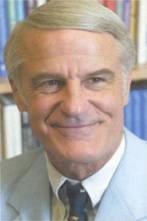 Born in Flint, Michigan, on 28 March 1941, Bill Ballenger is a former state representative and state senator, an ex-state racing commissioner, and director of the Michigan Department of Licensing & Regulation. Mr. Ballenger also served as Deputy Assistant Secretary of the U.S. Department of Health, Education & Welfare in the administration of President Gerald R. Ford. Bill Ballenger holds a B.A. degree magna cum laude from Princeton University and a master's degree in Public Administration from Harvard University's John F. Kennedy School of Government. He held the Robert P. & Marjorie Griffin Endowed Professorship in American Government at Central Michigan University from 2003-2007. He has also been a visiting Adjunct Professor at the University of Michigan / Flint; Michigan State University; & Western Michigan University. Much has been said about Bill Ballenger over the years. He has been dubbed by the Detroit News as "Michigan's undisputed Crown Prince of Pundits." In addition to his work on Inside Michigan Politics, he appears frequently on radio and television nationally & throughout Michigan. He also gives speeches & quotes to a variety of newspapers & various interest groups. Ballenger speaks frequently on issues pertaining to Michigan government and politics. He often serves as a moderator at candidate forums.
Born in Flint, Michigan, on 28 March 1941, Bill Ballenger is a former state representative and state senator, an ex-state racing commissioner, and director of the Michigan Department of Licensing & Regulation. Mr. Ballenger also served as Deputy Assistant Secretary of the U.S. Department of Health, Education & Welfare in the administration of President Gerald R. Ford. Bill Ballenger holds a B.A. degree magna cum laude from Princeton University and a master's degree in Public Administration from Harvard University's John F. Kennedy School of Government. He held the Robert P. & Marjorie Griffin Endowed Professorship in American Government at Central Michigan University from 2003-2007. He has also been a visiting Adjunct Professor at the University of Michigan / Flint; Michigan State University; & Western Michigan University. Much has been said about Bill Ballenger over the years. He has been dubbed by the Detroit News as "Michigan's undisputed Crown Prince of Pundits." In addition to his work on Inside Michigan Politics, he appears frequently on radio and television nationally & throughout Michigan. He also gives speeches & quotes to a variety of newspapers & various interest groups. Ballenger speaks frequently on issues pertaining to Michigan government and politics. He often serves as a moderator at candidate forums.
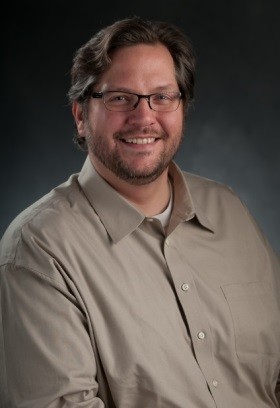 Cliff Lampe is an Associate Professor in the School of Information at the University of Michigan. He is also the Director of the Citizen Interaction Design Program, and co-Director of the Social Media Research Lab. Dr. Lampe studies online behavior, and how people use online tools to accomplish their prosocial goals. He has collaborated extensively with companies like Facebook and Google in thinking about how people behave online, and the effects of that behavior.
Cliff Lampe is an Associate Professor in the School of Information at the University of Michigan. He is also the Director of the Citizen Interaction Design Program, and co-Director of the Social Media Research Lab. Dr. Lampe studies online behavior, and how people use online tools to accomplish their prosocial goals. He has collaborated extensively with companies like Facebook and Google in thinking about how people behave online, and the effects of that behavior.
 Pulitzer Prize-winner Eric Freedman is the Knight Chair in environmental journalism and director of Capital News Service at MSU’s School of Journalism. Before joining the faculty full-time in 1996, Freedman was a reporter for the Albany, N.Y., Knickerbocker News and then for the Lansing Bureau of the Detroit News, primarily covering state government, politics, public affairs and legal issues. He is a columnist for Domemagazine.com and Diverseeducation.com and a frequent contributor to Automotive News. Internationally, he has been a Fulbright Scholar at universities in Uzbekistan and Lithuania and served as associate dean of International Studies & Programs at MSU. His academic research focuses on press coverage of the environment and other public policy issues, professional journalism practices and international constraints on the press. He earned a bachelor’s degree in government at Cornell, a law degree at New York University and a master’s in resource development at MSU.
Pulitzer Prize-winner Eric Freedman is the Knight Chair in environmental journalism and director of Capital News Service at MSU’s School of Journalism. Before joining the faculty full-time in 1996, Freedman was a reporter for the Albany, N.Y., Knickerbocker News and then for the Lansing Bureau of the Detroit News, primarily covering state government, politics, public affairs and legal issues. He is a columnist for Domemagazine.com and Diverseeducation.com and a frequent contributor to Automotive News. Internationally, he has been a Fulbright Scholar at universities in Uzbekistan and Lithuania and served as associate dean of International Studies & Programs at MSU. His academic research focuses on press coverage of the environment and other public policy issues, professional journalism practices and international constraints on the press. He earned a bachelor’s degree in government at Cornell, a law degree at New York University and a master’s in resource development at MSU.

